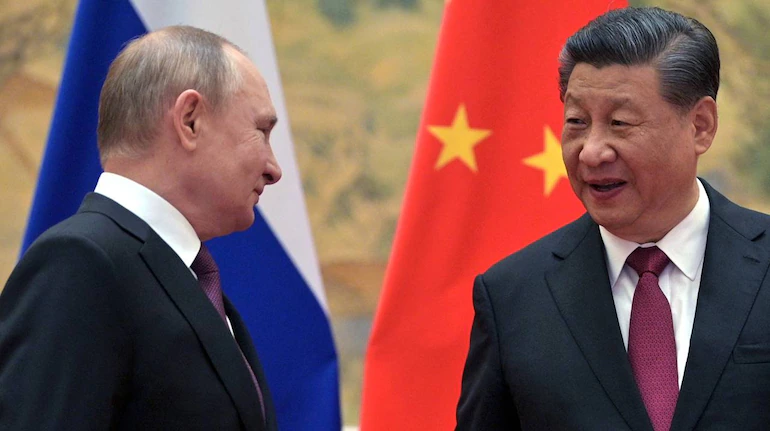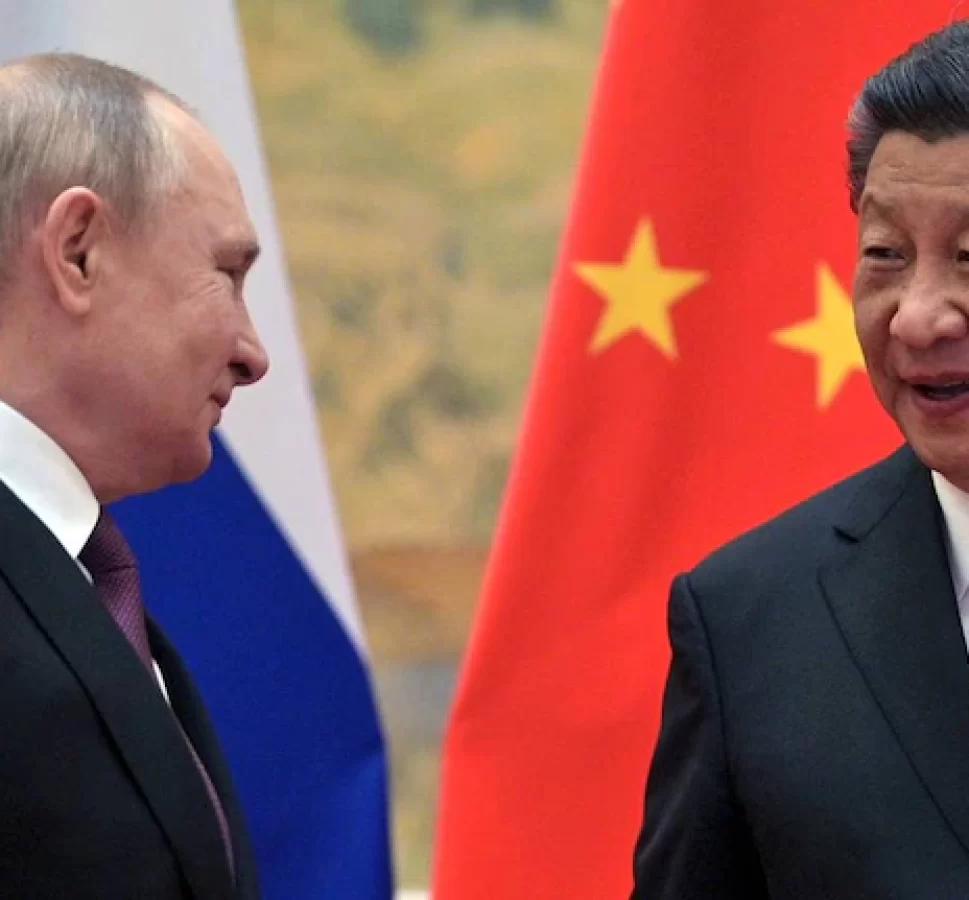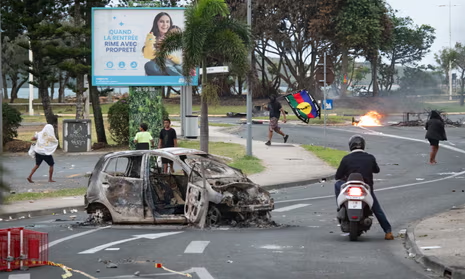
President Vladimir Putin has signalled approval of China’s plan as a “genuine desire” to end the war in Ukraine as he travels to Beijing to shore up support from his vital international partner.
In an interview with China’s Xinhua state news agency published on Wednesday ahead of a two-day visit to the country to meet President Xi Jinping, Putin praised Beijing’s approach, saying that it truly understood the conflict’s “root causes” and its “global geopolitical meaning”.
China’s 12-point paper for ending the war received a lukewarm reception when it was made public last year. However, Putin hailed additional measures made public last month as “realistic and constructive steps” that “develop the idea of the necessity to overcome the Cold War mentality”.
Xi’s additional principles, set down in talks with German Chancellor Olaf Scholz, call for a “cooling down” of the situation, conditions for restoring peace and creating stability and minimising the effects on the world economy.
Ukrainian presidential adviser Mykhailo Podolyak on Wednesday dismissed Putin’s comments on possible negotiations over the war as “hypocritical”.
Putin is scheduled to arrive in Beijing on Thursday, his first trip abroad since his March re-election and his second in just over six months to China. He will also travel to the northeastern city of Harbin for a trade and investment exposition.
China wary
Russia and China proclaimed a “no limits” relationship just days before Moscow launched its invasion of Ukraine in February 2022, but Beijing has so far avoided providing actual weapons and ammunition for Russia’s war effort.
With the West having imposed unprecedented sanctions over its military offensive, Russia has looked to China as a crucial economic lifeline.
The two countries have since boosted trade to record highs. China has benefitted from cheap Russian energy imports and access to vast natural resources, including steady gas shipments via the Power of Siberia pipeline.
But China, already engaged in a trade war with the United States, is wary of its economic partnership and military cooperation with Russia coming under further scrutiny from the West.
On Tuesday, the US slapped major new tariffs on Chinese electric vehicles, advanced batteries, solar cells, steel, aluminium and medical equipment. China immediately promised retaliation, promising to take measures to defend its interests.
China has already been targeted by punitive measures over the war. This month, the US announced sanctions against more than 280 entities in their latest effort to paralyse Russia’s military and industrial capabilities, including 20 firms based in China and Hong Kong.
Peace summit
Russia views the conflict in Ukraine as a struggle pitting it against a “collective West” that took no account of its security concerns by promoting the eastward expansion of NATO and military activity close to its borders.
Ukrainian President Volodymyr Zelenskyy’s peace plan calls for a withdrawal of Russian troops, the restoration of its 1991 post-Soviet borders and bringing Russia to account for its actions.
He has expended great efforts to persuade China to attend a “peace summit” scheduled for June in Switzerland.
But Russia, which is not invited, dismisses the initiative as meaningless and says talks must take account of “new realities”.
Zelenskyy’s aide Podolyak posted on X about what he called “Putin’s hypocritical ‘negotiation’ activity”, adding that “at the same time, Russia continues to burn cities in Donbas and is trying to break through in Kharkiv region, while simultaneously scaling up crimes against civilians”.
US Secretary of State Antony Blinken, who is visiting Ukraine, has said that Russia should and must pay to rebuild what it has destroyed in the country, adding that the US intends to use its power to seize Russian assets.
Advertisement
Zelenskyy asked Blinken for Patriot missile defence systems for the city of Kharkiv near the Russian border amid continuing gains by Russian forces in the region.






